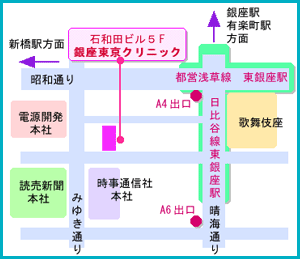ビタミンDは大腸がん患者と乳がん患者の生存率を高める
ビタミンDは大腸がん患者と乳がん患者の生存率を高める
Serum
25-hydroxyvitamin D levels and survival in colorectal and breast cancer
patients: systematic review and meta-analysis of prospective cohort studies.(結直腸がんと乳がん患者における血清25-ヒドロキシビタミンDの濃度と生存率の関係:前向きコホート研究の系統的レヴューとメタ解析)Eur J Cancer. 50(8):1510-21.2014年
【要旨】
研究の目的:結腸直腸がんと乳がんの患者において、血清中の25-ヒドロキシビタミンD (25(OH)D)の濃度と生存率の間の関連があるかどうかを検討した。
方法:結腸直腸がんと乳がんの患者を対象にして、血清25(OH)D濃度と生存率の関連を検討した前向きコホート研究に関する文献の検索を行い、それらの結果を集計して統計的に解析し、ハザード比を求めた。
結果:結腸直腸がん患者を対象にした5つの臨床試験(患者総数2330人)と乳がん患者を対象にした5つの臨床試験(患者総数4413人)が、血清中の25(OH)Dのレベルを2〜5段階に分類して生存率を比較していた。
結腸直腸がん患者では、25(OH)Dレベルが最も低いグループに対して最も高いグループの全死因死亡率のハザード比は0.71(95%信頼区間:0.55-0.91)、結腸直腸がんによる死亡率のハザード比は0.65 (95%信頼区間:0.49-0.86)であった。
乳がん患者では、25(OH)Dレベルが最も低いグループに対して最も高いグループの全死因死亡率のハザード比は0.62(95%信頼区間:0.49-0.78)、乳がんによる死亡率のハザード比は0.58 (95%信頼区間:0.38-0.84)であった。
結論:結腸直腸がんの患者と乳がんの患者において、血清中の25(OH)Dの高値(>75nmol/L)は死亡率の低下と関連していた。血清
結腸直腸がん患者と乳がん患者において、診断時や治療の開始前に血清中の25(OH)Dレベルが低い(<50nmol/L)場合に、ビタミンDをサプリメントで補うことで生存率を改善できるかどうかを検討するランダム化比較対照試験を実施する必要がある。
(注)
もともと25-OHビタミンD3の血清濃度が高い人が、さらにサプリメントでビタミンD3を多く摂取してがん死亡率をさらに低下できるかどうかはまだデータがありません。しかし、25-OHビタミンD3の血清濃度が低い人(50 nmol/L以下)の場合はサプリメントでの補充は生存率を1.5倍から2倍くらいに高める可能性は高いようです。(25-OHビタミンD3の50nmol/Lは25ng/ml)
原文:
Eur J Cancer. 2014 May;50(8):1510-21.
doi: 10.1016/j.ejca.2014.02.006. Epub 2014 Feb 28.
Serum 25-hydroxyvitamin D levels and survival in colorectal and breast
cancer patients: systematic review and meta-analysis of prospective cohort
studies.
Abstract
AIM:
To estimate the association between serum 25-hydroxyvitamin D (25(OH)D) levels and survival among colorectal and breast cancer patients.
METHODS:
We performed a comprehensive literature search of prospective cohort
studies assessing the association of serum 25(OH)D levels with survival in
colorectal and breast cancer patients. Study characteristics and results were
extracted and dose-response relationships were graphically displayed in a
standardised manner. Meta-analyses using random effects models were performed
to estimate pooled hazard ratios.
RESULTS:
The systematic search yielded five studies including 2330 colorectal
cancer patients and five studies including 4413 breast cancer patients all of
which compared mortality across two to five categories of 25(OH)D levels. Among
colorectal cancer patients, pooled hazard ratios (95% confidence intervals)
comparing highest with lowest categories were 0.71 (0.55-0.91) and 0.65
(0.49-0.86) for overall and disease-specific mortality, respectively. For
breast cancer patients, the corresponding pooled estimates were 0.62
(0.49-0.78) and 0.58 (0.38-0.84), respectively. No significant evidence of
heterogeneity between studies was observed.
CONCLUSION:
Higher 25(OH)D levels (>75nmol/L) were associated with significantly reduced mortality in patients with colorectal and breast cancer. Randomised controlled trials are needed to evaluate whether vitamin D supplementation can improve survival in colorectal and breast cancer patients with low vitamin D status (25(OH)D<50nmol/L) at diagnosis and before treatment.
< 前の記事「 メトホルミンは直腸がんの化学放射線療法の効き目を高める 」 | ホーム | 次の記事「 メトロノミック・ケモテラピーで長期間生存した乳がん肝臓転移の ... 」 >






